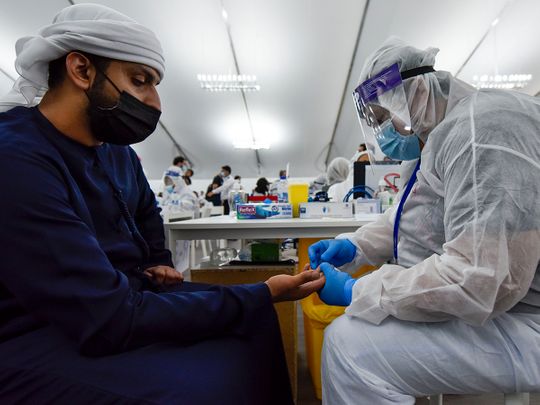
Dubai: Those entering the emirate of Abu Dhabi from within the UAE will need to adhere to updated guidelines from February 1, following an announcement by the Abu Dhabi Emergency, Crisis and Disasters Committee.
The updated procedures to enter Abu Dhabi were announced on January 30 and include new validity durations for a negative COVID-19 test, based on the type of test that was taken.
What happens if I have taken a PCR test?
The validity of a negative Polymerase Chain Reaction (PCR) test is 48 hours, within which a person can enter the emirate.
If you plan to stay in Abu Dhabi for long, you would be required to take a re-test (PCR only). If you are staying in Abu Dhabi for four days or longer, you would be required to take a re-test on Day 4, with Day 1 counted as the day on which you enter the emirate. Another test (PCR only) needs to be taken on Day 8, in case the stay is for eight days or longer.
What happens if I have taken a DPI test?
If you have taken a Diffractive Phase Interferometry (DPI) test, the validity of the test is 24 hours, within which you would be required to enter the emirate. However, within the 24 hour time span, you can only enter the emirate once. In its announcement, the Abu Dhabi Media Office said: “DPI tests cannot be used to enter Abu Dhabi two consecutive times, which could be proven using Alhosn app.”
Those staying for a long period within the emirate would need to take a PCR test on Day 3 of entry and another PCR test on Day 7, in case they are staying for seven or more days.
Those who do not take the required tests are liable for fines.
Exemption for those vaccinated
The procedures apply to all UAE citizens and residents, including Abu Dhabi residents, except for volunteers in Phase III vaccine clinical trials and those who are vaccinated as part of national vaccination programmes who have active icons (gold star or letter E) on the Alhosn app, who should adhere to their respective protocols.







